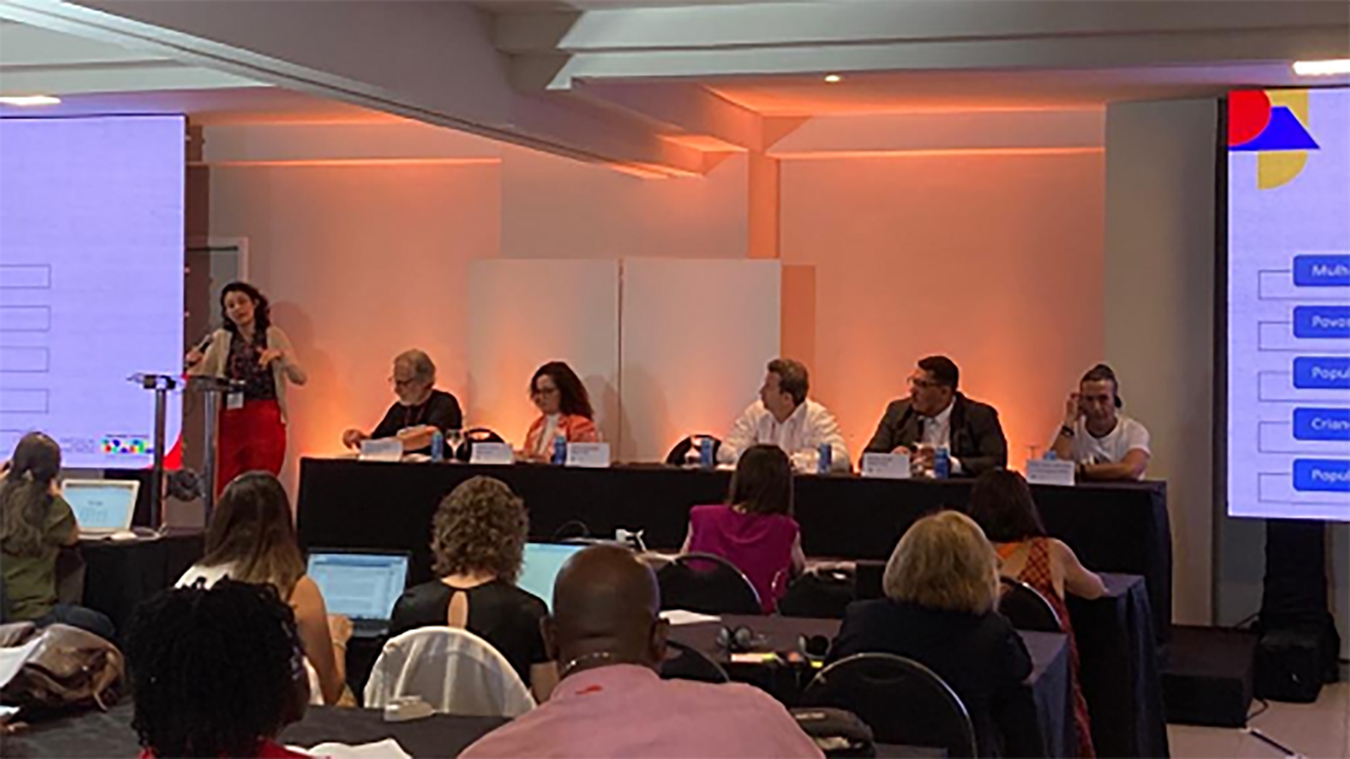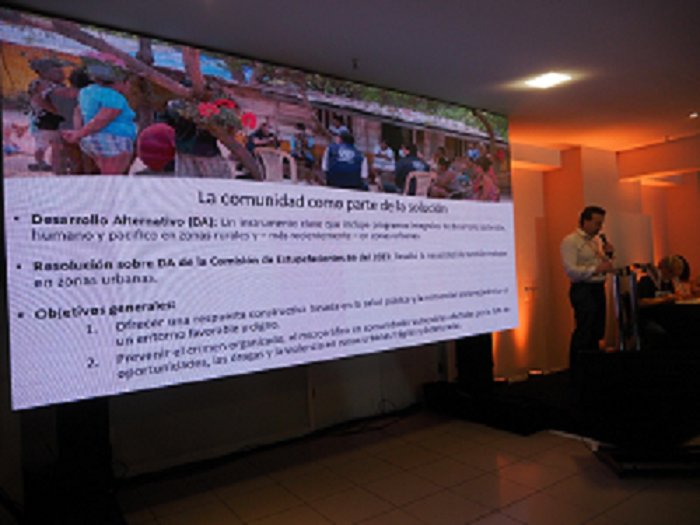
Fortaleza, Brazil, 26 April 2023 - The United Nations Office on Drugs and Crime (UNODC) in Brazil participated in the "COPOLAD III International Seminar: Drugs, Vulnerabilities and Urban Territories", which aimed to present strategies on drug policies and sustainable development. The event was organized by the National Secretariat for Drug Policy and Asset Management (SENAD/MJSP) and the European Union in partnership with COPOLAD.
Held in Ceará, from 24 to 26 April, the meeting brought together government managers and experts from 23 countries of Latin America, the Caribbean and Europe, as well as representatives of civil society, academia and international organizations. The meeting aimed to develop proposals to improve the results and impacts of drug policies related to sustainable development in communities, focusing on policies to reduce poverty and inequality and improving urban space, the environment and public safety.
Representing UNODC were the global coordinator for alternative development/sustainable livelihoods, Thierry Rostan and the project officer for the crime and violence prevention programme of Pernambuco, Rafael Sales, who formed the panel for the session on "Territorialisation, Development and Vulnerable Communities", together with the Braziliannational secretary on drugs, Marta Machado.

The session aimed to analyse, debate and clarify the territorialisation of sustainable development strategies in vulnerable drug-related communities.
For Thierry Rostan, who presented UNODC approach on Alternative Development/Sustainable Livelihoods, "the community must be part of the solution. It is important to work on socio-economic reintegration to reduce crime in areas affected by lack of opportunities," he said.
UNODC presented it's actions under the Violence and Drug Prevention Programme in Pernambuco and highlighted the importance of "building policies that act in an early manner in the escalation of violence. It is also necessary to do this based on scientific evidence".
On the third last day of the Seminar, dialogues were held on "Integral Approaches to Microdrug Trafficking", having as a main guideline the advanceof the discussion on the dynamics of microdrug trafficking and interventions for its prevention, as well as coordination and cooperation on drugs among the countries present at the event.
To learn more about the work of UNODC under the Violence and Drug Prevention Programme in Pernambuco, access here.
To learn more about UNODC work on Alternative Development/Sustainable Livelihoods, click here.
Learn more: http://www.agenda2030.com.br/.